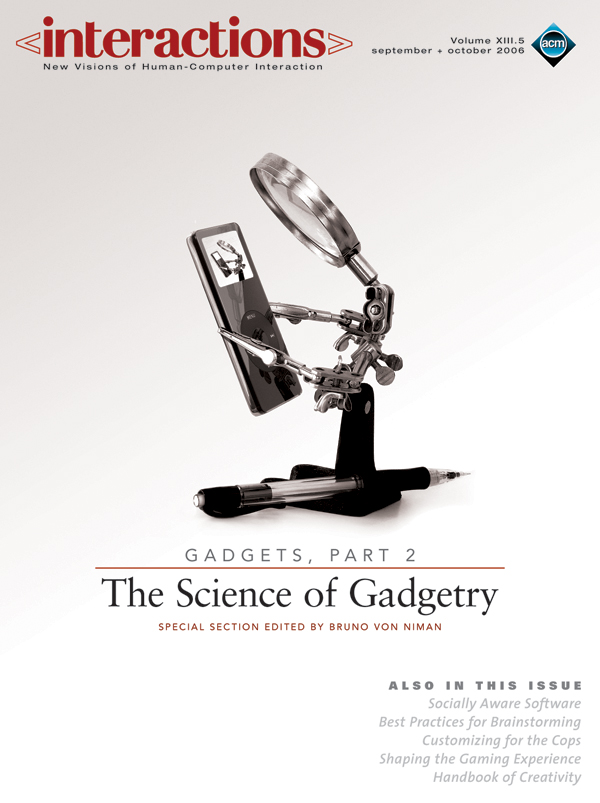Authors:
Edwin Blake
If a government or NGO (a nongovernmental, nonprofit organization) of a developing country decides that information and communications technology (ICT) can be useful for development, the question that arises for practitioners is how to provide a useful sustainable system that is wanted and actually used. Since computers have been regarded as devices that disempower marginalized people, we want to empower disadvantaged people to use and control the technology and avoid creating passive consumers. As academics we want to train ourselves, our students, and our industry to provide ICT in that fashion. I am arguing for a method for investigating…
You must be a member of SIGCHI, a subscriber to ACM's Digital Library, or an interactions subscriber to read the full text of this article.
GET ACCESS
Join ACM SIGCHIIn addition to all of the professional benefits of being a SIGCHI member, members get full access to interactions online content and receive the print version of the magazine bimonthly.
Subscribe to the ACM Digital Library
Get access to all interactions content online and the entire archive of ACM publications dating back to 1954. (Please check with your institution to see if it already has a subscription.)
Subscribe to interactions
Get full access to interactions online content and receive the print version of the magazine bimonthly.







Post Comment
No Comments Found